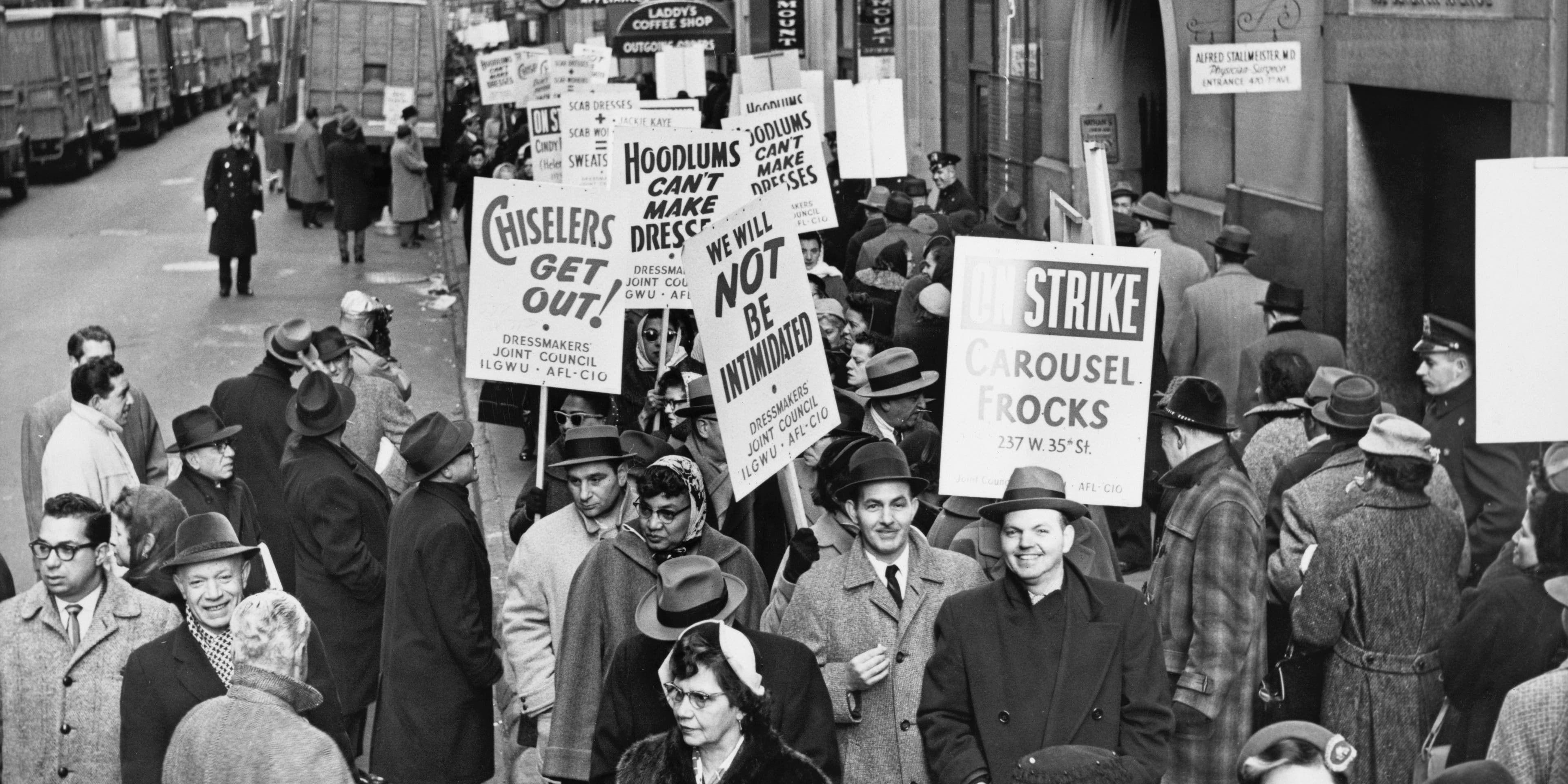
The enactment of Prohibition made America’s beer taps run dry, but it caused mobsters’ coffers to overflow from a booming bootleg liquor business. Flush with cash and power, criminal gangs such as the American Mafia transformed into sophisticated enterprises that diversified their illegal activities to include gambling, prostitution and labor racketeering. Mobsters such as Al Capone and New York’s Five Families expanded their underworld empires by infiltrating organized labor. Through intimidation and corruption, the mob used the labor unions for everything from extortion, bribery and embezzlement to price-fixing and kickbacks.
Since the advent of the American labor movement in the late 1800s, gangsters had exploited the division between unions and management by supplying muscle to both sides to break up picket lines or beat up the scabs who crossed those lines. As organized crime syndicates grew during Prohibition, they saw lucrative opportunities in labor racketeering.
“There had always been some unions that operated on the margins of legality by using a measure of force to organize,” says David Witwer, professor of American studies and history at Penn State Harrisburg and author of Corruption and Reform in the Teamsters Union. “In the late 1920s and early 1930s, powerful gangs such as Capone’s outfit in Chicago or the Five Families in New York City move to tax, license or take over…[unions’ business] activities.”
The Mafia targeted unions in low-wage industries known for their semiskilled labor, fierce competition, thin profits and decentralized union structures. In New York City, for example, the Five Families controlled unions in the construction, garment, garbage collection, trucking and restaurant industries. Using bribes and threats of physical violence, mobsters co-opted corrupt union leaders and sometimes installed one of their own in union leadership.
Once in charge of unions, the mob embezzled money from union dues and pension funds and threatened employers with financially crippling strikes to extort payments from them. They paid off corrupt police officers and offered corrupt politicians trade union support in return for immunity from arrest and prosecution.
By 1932, the president of the Chicago Crime Commission asserted that Capone controlled two-thirds of the city’s unions. When organized crime’s monopoly over alcohol evaporated with the end of Prohibition, its grip on labor unions only grew tighter.